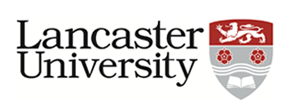亚裔美国人在平权行动辩论中不断变化的角色
在美国,围绕平权行动的辩论长期以来一直备受争议。多年来,亚裔美国人对于平权行动的立场从反对到支持不断变化。最近决定取消平权行动的举措使亚裔美国人应该记住他们争取种族平等的更广泛目标的重要性。尽管他们目前可能从没有平权行动中受益,亚裔美国人需要记住其他被边缘化社区的斗争,这些社区的贡献对推动他们达到当前位置至关重要。
在通过排华法案所面临的歧视政策和对日裔美国人的大规模关押之后,亚裔美国人呼吁为被排斥的少数族裔制定平权行动计划。从1960年代到1980年代,亚裔美国人为有色人种的边缘化社区打破高等教育障碍做出了贡献,并从平权行动中获益。
当平权行动出现作为应对历史上教育领域种族不平等的措施时,亚裔美国人最初被包括在受益群体之内。然而,随着人口构成发生变化和高素质亚裔美国申请者的数量增加,人们开始关注潜在的过度代表和不公平竞争问题。许多精英大学决定将亚裔美国人从平权行动计划中剔除,并改为与白人申请者直接竞争评估。于是,在全国范围内,白人校友为了提高他们子女的求学机会,开始向大学领导施加压力,限制亚裔学生的录取。为了应对这些担忧,一些平权行动政策开始更加关注种族平衡,导致亚裔美国人受到不同的录取标准或在申请过程中面临非显性偏见。这些发展使一些亚裔美国人认为平权行动对他们不利。
亚裔美国人历来被视为“模范少数族裔”群体,常常被描绘为成功和学业有成。这种观念导致公众普遍认为他们没有遭受重大歧视或成功面临障碍,忘记了他们之前所面临的偏见。反对平权行动者欺骗性地利用“模范少数族裔”神话,将全国范围内的辩论从为所有人提供机会和平等转向了稀缺和排斥。
一个关键转折点发生在1995年,那年加利福尼亚大学董事会作出了取消平权行动的灾难性决定,对平等教育构成了重击。根据学校数据,1995年加州大学伯克利分校黑人学生的入学率为5.9%,而2022年为3.8%。此外,乔治敦大学的研究人员进行了模拟,看看如果大学入学不考虑种族因素会发生什么。他们发现,在全国范围内禁止平权行动将会减少精英大学的种族多样性,除非“对大学入学制度进行根本性重设计”。
最近的法律发展和政策变化限制了平权行动的使用,使一些亚裔美国申请者在大学录取中获得了优势,因为他们不再面临平权行动措施的竞争。因此,在一些享有声望的大学中,亚裔美国人的入学人数激增。然而,尽管亚裔美国人现在享受到没有平权行动所带来的某些好处,他们不应忘记更广泛的争取种族公平的斗争。解决历史和现实中的歧视问题影响到不同的有色人种社区,每个社区都面临着独特的挑战。我们不能假装或忘记曾经存在过种族排斥;对亚裔美国人来说,记住他们对种族正义的追求超越了个人利益至关重要。
亚裔美国人经历了歧视和偏见的影响,具有独特的观点,能够与其他争取种族公平的人们产生共鸣。通过展示团结和接纳交叉性,亚裔美国人可以在实现更具包容性和公平的社会中发挥关键作用。我们需要思考我们想要建设什么样的社会——确保每个人的流动和机会,还是将社会回报专门保留给一个少数特权群体,并在这个过程中操纵亚裔美国人作为棋子。
The debate surrounding affirmative action has long been a contentious issue in the United States. Over the years, the stance of Asian Americans has shifted back and forth from opposing to advocating for affirmative action. With the recent decision to remove the use of affirmative action, it is essential for Asian Americans to remember the broader objectives of their fight for racial equity. While they may currently benefit from the absence of affirmative action, Asian Americans need to remember the struggles of other marginalized communities, whose contributions have been instrumental in propelling them to their current position.
After the discriminatory policy and exclusionary practice faced by Chinese immigrants through the Chinese Exclusion Act and the mass incarceration of Japanese Americans, Asian Americans called for affirmative action programs for racially excluded minorities. From the 1960s through the 1980s, Asian Americans contributed to breaking barriers in higher education for marginalized communities of color and reaped benefits from affirmative action initiatives.
When affirmative action emerged as a response to address historical racial disparities in education, Asian Americans were initially included as part of the intended beneficiaries. However, as the demographic landscape changed and the number of highly qualified Asian American applicants increased, concerns arose about potential overrepresentation and unfair competition. Many elite universities decided to remove Asians from affirmative action programs and evaluate them instead in direct competition with white applicants. In turn, white alumni across the country, anxious about their children’s chances to attend their alma maters, began pressuring university leaders to take measures to limit admissions of Asian students. In response to these concerns, some affirmative action policies began to focus more on ethnic or racial balancing, leading to Asian Americans being subjected to different admissions standards or facing implicit biases in the application process. These developments contributed to a perception among some Asian Americans that affirmative action disadvantaged them.
Asian Americans have historically been seen as a "model minority" group, often portrayed as successful and academically accomplished. This perception led to an assumption that they did not face significant discrimination or barriers to success, forgetting the prejudices they previously faced. Affirmative action opponents deceptively used the “model minority” myth to shift the national debate from access and opportunity for all to scarcity and exclusion.
A crucial turning point came in 1995, when the University of California’s board of regents made the calamitous decision to eliminate affirmative action; its gutting was a blow to equal education. According to school data, the University of California, Berkeley’s Black student enrollment was 5.9% in 1995, compared to 3.8% in 2022. Furthermore, researchers from Georgetown University ran simulations to see what would happen if race was removed from college admissions. They found that a national ban would decrease the ethnic diversity of students at selective colleges unless there was "a fundamental redesign of the college admissions system."
The recent legal developments and policy changes limiting the use of affirmative action has led to some Asian American applicants gaining an advantage in college admissions, as they no longer face potential competition from affirmative action measures. Consequently, there has been a surge in Asian American enrollment at some prestigious universities. However, while Asian Americans now enjoy certain benefits resulting from the absence of affirmative action, they should not to lose sight of the broader fight for racial equity. The struggle to address historical and ongoing discrimination affects various communities of color, each facing unique challenges. We cannot pretend or forget that racial exclusion has never taken place; it is crucial for Asian Americans to remember that their pursuit of racial justice extends beyond their personal interests.
Asian Americans, having experienced the effects of discrimination and prejudice, possess a unique perspective that enables them to empathize with others fighting for racial equity. By demonstrating solidarity and embracing intersectionality, Asian Americans can play a pivotal role in achieving a more inclusive and equitable society. We need to consider what kind of society we want to build – one that ensures mobility and opportunity for everyone, or one where social rewards are exclusively reserved for a privileged few who are exploiting Asian Americans as pawns in the process.
















